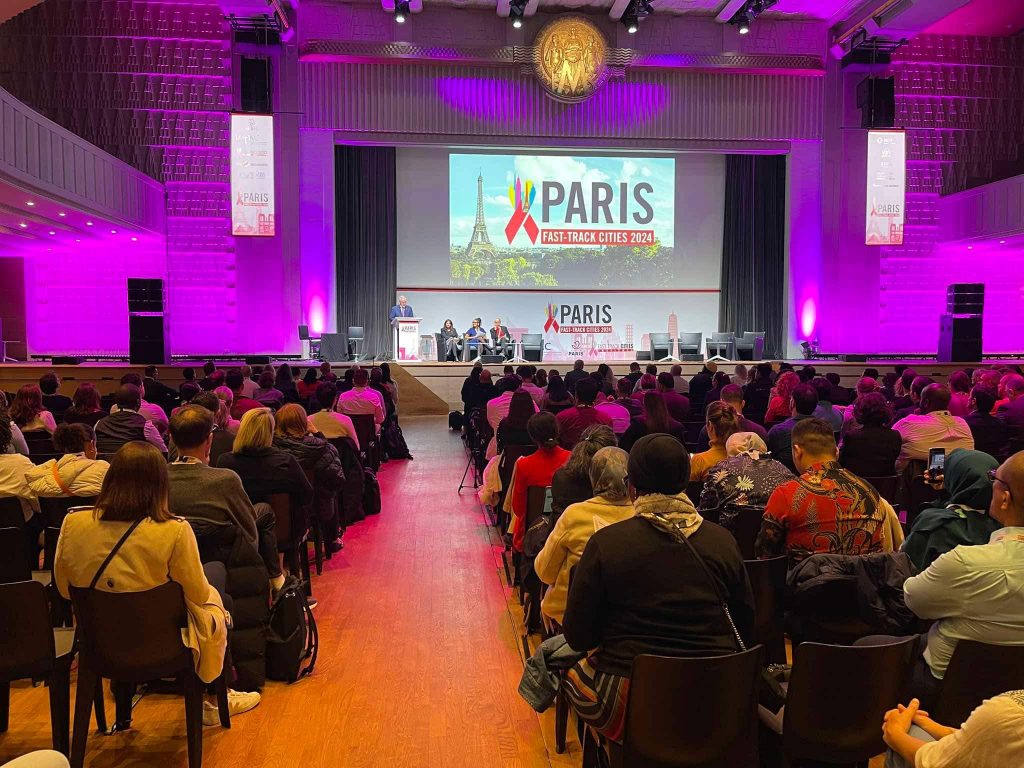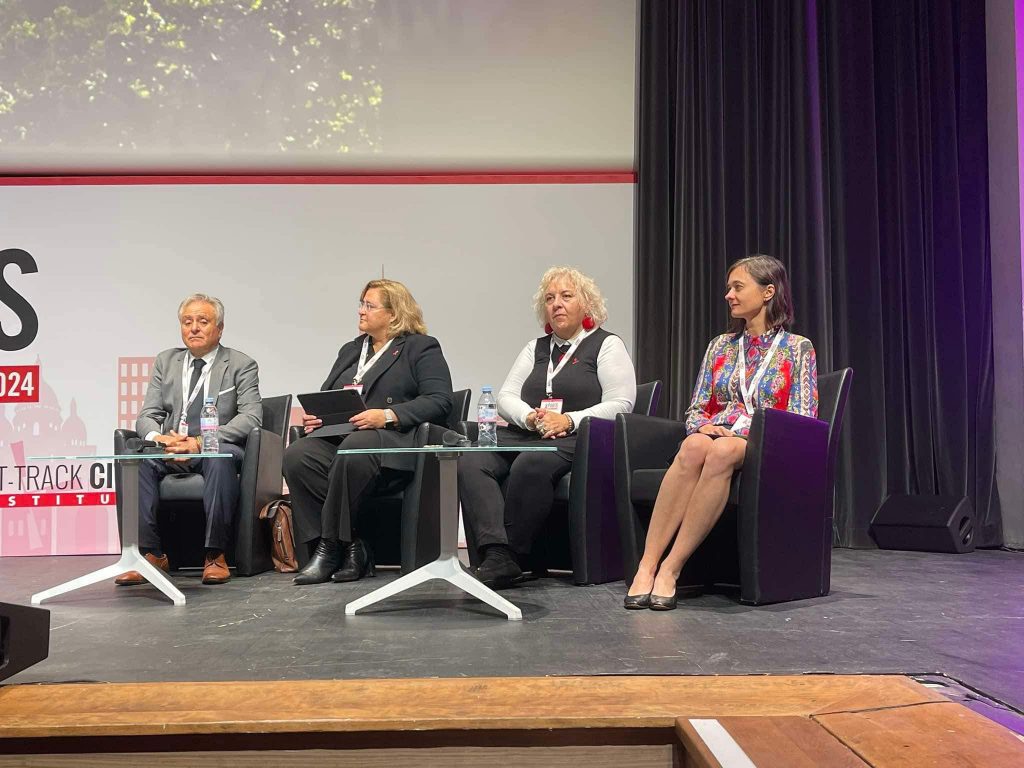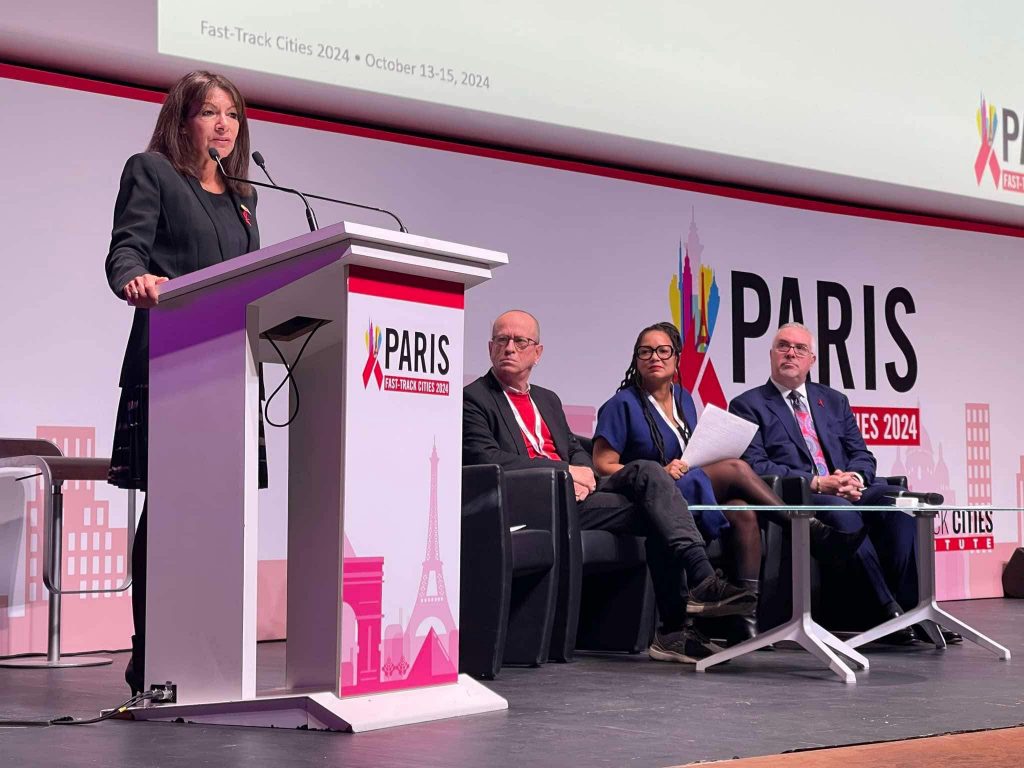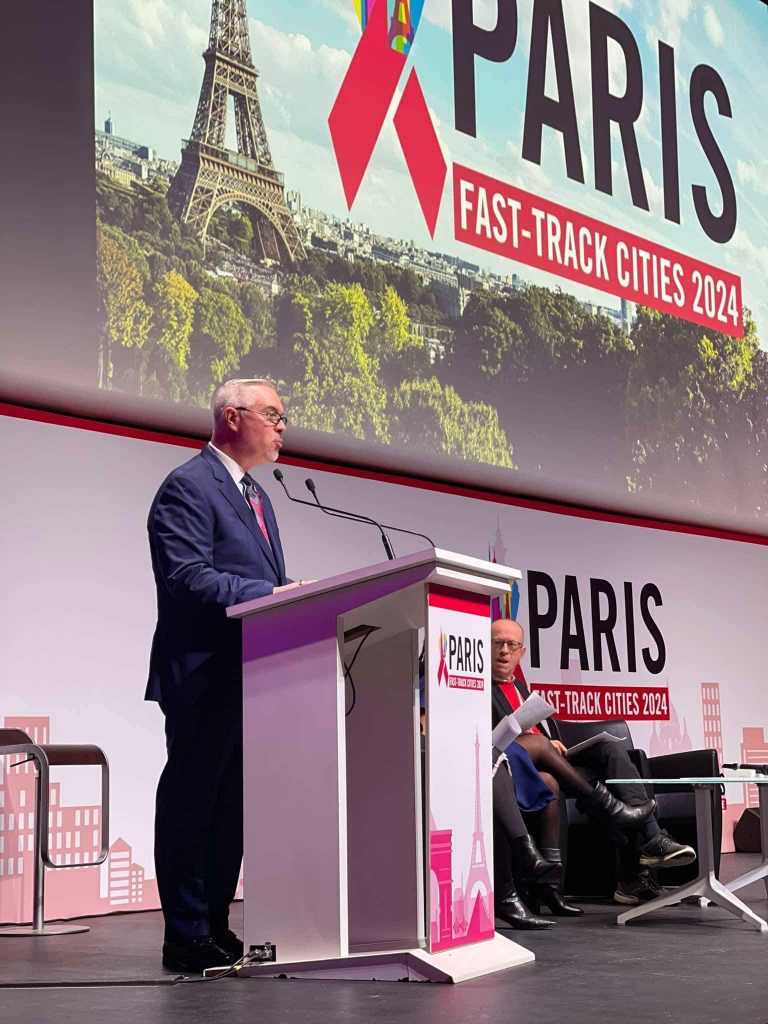From October 13 to 15, the Global Fast-Track Cities 2024 Conference is being held at Maison de la Mutualité, Paris, marking the 10th anniversary of the launch of the Fast-Track Cities initiative, which began on World AIDS Day in 2014. The event, organized with the support of the Mayor of Paris, brings together more than 550 cities under the theme “Equity in Action”, to discuss achievements in the fight against HIV, tuberculosis, and hepatitis, as well as to focus on further advancing health-related sustainable development goals by 2030.
The delegation of Eastern European and Central Asian countries is also participating in this year’s conference, including representatives from Tajikistan, Ukraine, and Montenegro.
This year’s conference is focused on ensuring equity in access to healthcare services and improving HIV outcomes for all communities. Special attention will be given to sharing best practices in accelerating responses to urban health challenges and exploring new approaches to implementing comprehensive measures in combating epidemics.
During the panel discussion “Equity in Action: Health Equity through Shared Responsibility,” Tetiana Deshko, Director of the International Programs Department at the Alliance for Public Health, emphasized the importance of partnerships between the state and civil society, noting: “It is significant that the 10th anniversary of Fast-Track Cities is being celebrated in Paris — a city that has given global momentum to the solidarity of cities in the fight against AIDS. During the COVID-19 pandemic, Paris introduced the ’15-minute city’ model to ensure access to essential services. And today, as the city hosts the Paralympic Games, it showcases how inclusivity can become a norm in everyday life.”
10 Years of Fast-Track Cities in the EECA Region: $10 Million Allocated Across 34 Cities
One of the key achievements of Fast-Track Cities in the Eastern Europe and Central Asia region has been the unification of 34 cities from 13 countries in the fight against HIV and tuberculosis. Since 2017, municipal authorities in these cities have allocated $10 million for implementing health programs and introducing innovative approaches.
“The regional partnership of cities has been a vital support during Russia’s military aggression against Ukraine. Thanks to our partners, we quickly established the HelpNOW consultative service for migrant patients to help them access treatment in their new locations. The solidarity of cities like Chisinau, Moldova, was crucial for millions of Ukrainian migrants,” added Tetiana Deshko.
The EECA delegation at this year’s conference includes representatives from Tajikistan, Ukraine, and Montenegro, along with activists and government officials.
Among the key speakers at the conference is Gennadiy Trukhanov, Mayor of Odesa, who highlighted the importance of integrating international practices and coordinated efforts to succeed in the fight against AIDS.
“We signed the Paris Declaration and the STOP TB Declaration in 2017, which was a major step toward building a healthy civil society. Thanks to increased funding and collaborative efforts, today 98% of people living with HIV in Odesa know their status, 96% receive treatment, and 96% have undetectable viral loads. This is the result of our joint work,” emphasized Trukhanov.
“We can build roads, dozens of schools, or hospitals. But what’s the point if no one will use them? That’s why we must unite our efforts around the core values: human life and health.”
Sanja Sisović, Program Director of CAZAS and coordinator of the SOS 2.0 project in Montenegro, noted: “The joint implementation of the SOS 2.0 project with the municipality has led to significant progress in introducing innovative approaches to meeting the needs of key populations and HIV prevention. The opening of the House of Health has been a true breakthrough. This unique facility, created in partnership with the regional project implementers and civil society organizations specializing in HIV, has become a center for providing comprehensive assistance. The House of Health is managed by the municipality, and this partnership has resulted in a service that provides hundreds of consultations annually, conducts community testing, and contributes to the development of more inclusive local HIV policies.”





